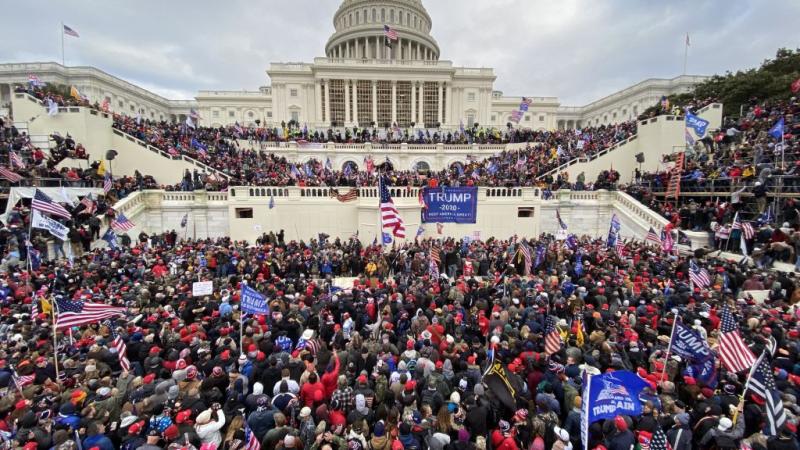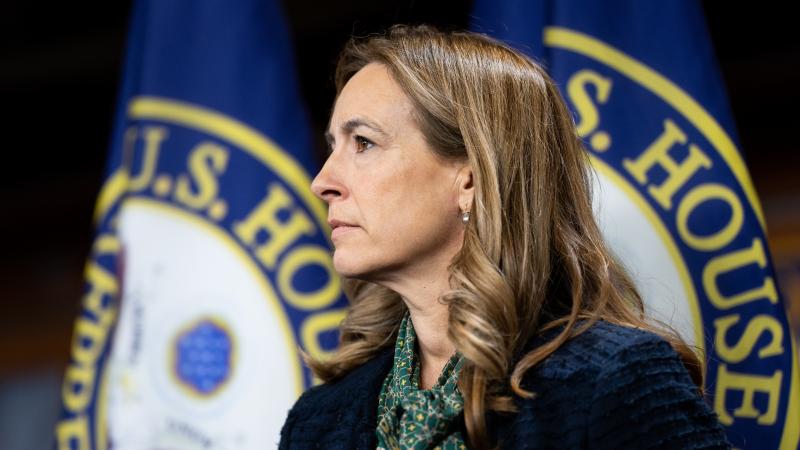Crime: Overblown election factor or inaccurate exit polls?
Voters consistently ranked crime as their second most important issue behind the economy and inflation — until election night.
Republican hopes for a landslide, "red tsunami" victory in the 2022 midterm elections faded Tuesday night as Democrats performed better in House races than expected and won key Senate and gubernatorial seats considered vulnerable.
One reason for the underwhelming GOP performance — which is still expected to produce Republican control of the House and possibly a slight majority in the Senate when the results are finalized — appears to be crime.
For the last several months right up to Election Day, the economy, especially inflation, consistently ranked as the top issue for voters, according to various polling. Crime was often trailing right behind as a chief concern of Americans — and normally ahead of abortion, another major issue for voters.
An ABC News/Washington Post poll released Sunday, for example, found that 69% of likely voters called crime a top issue for their vote, while abortion came in at 62%.
Gallup polling from earlier last week showed 71% of registered voters said crime was either extremely or very important to their vote, trailing only the economy. By comparison, 66% said the same for abortion.
A recent Harvard CAPS-Harris Poll survey similarly placed crime as the second most important issue for voters and comfortably ahead of abortion.
Meanwhile, this same polling has consistently shown for months that voters trust Republicans more than Democrats to handle crime — in some cases by a whopping 20 percentage points.
Republicans saw this data and in the closing weeks of the campaign hammered Democrats with relentless attack ads for pushing policies that, they argued, contributed to increases in crime nationwide.
Several top Republicans, including former President Trump, embraced this emphasis, which appeared to be resonating, with GOP candidates gaining ground in several key races — contributing to expectations of a resounding midterm victory for the Republican Party.
Amid this GOP onslaught on crime, Democrats tried to pivot and focus instead on abortion, an issue on which polling indicated they enjoyed greater support.
On election night, however, while Democrats appear poised to lose the House as of this writing and may yet still lose the Senate, they fought off a red tsunami, outperforming expectations among pollsters and pundits.
Observers have begun the process of explaining what happened, but one explanation may be found in the exit polls, which confirmed the economy/inflation was the top issue for voters but also placed abortion as the second most important, with crime well behind.
CNN's exit poll, for example, found 27% of voters said abortion was the most important issue to their vote, only trailing inflation, while crime came in a distant third at 12%, tied with gun policy.
ABC News and Reuters found similar results.
One CBS Pennsylvania exit poll actually had abortion leading inflation as the issue that mattered most to one's vote, 36% to 28%. Crime stood in third at 11%.
And according to the network exit poll conducted by Edison Research and the AP VoteCast poll, 27% of voters said abortion was the most important issue in their vote, slightly behind inflation and well ahead of crime. Abortion also came in slightly ahead of crime as the most important issue facing the country, but all issues were far behind the economy and jobs.
Both the exit polls and the preelection data showed crime was a more important issue to Republicans than Democrats and abortion was a more important issue to Democrats than Republicans. Overall voter numbers may shed light on whether there was an especially high turnout for Democrats, potentially shifting the exit poll data in favor of abortion.
The rule of thumb is to view exit polls with more than a grain of salt as they haven't been weighed against the actual final results. But they can still be telling.
Regarding crime, however, it's unclear at this point whether Tuesday night's exit polls or the pre-election data was inaccurate.
















